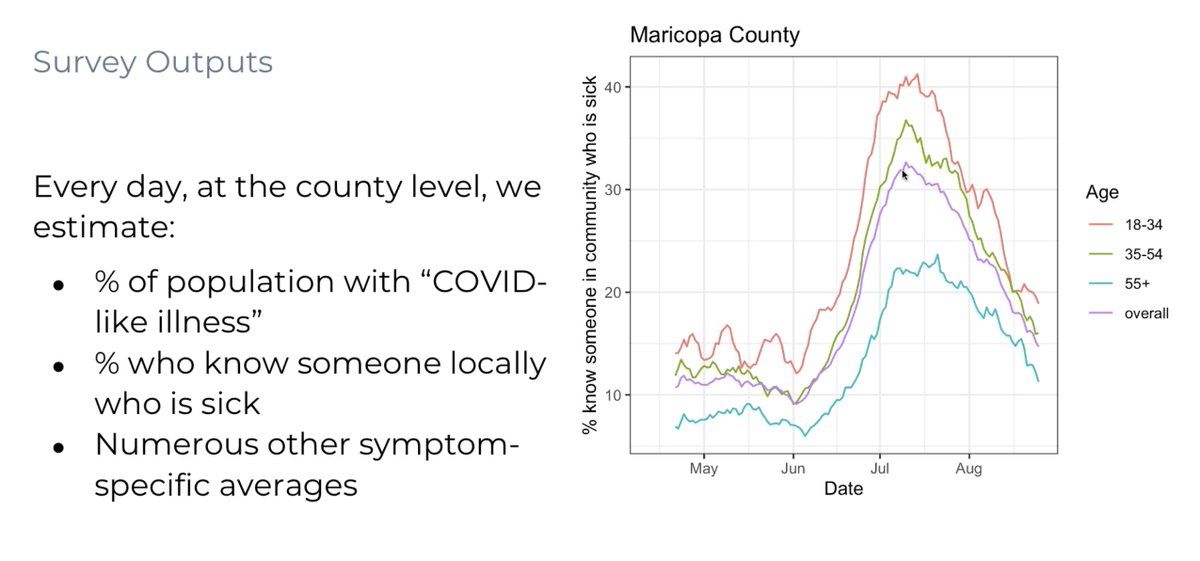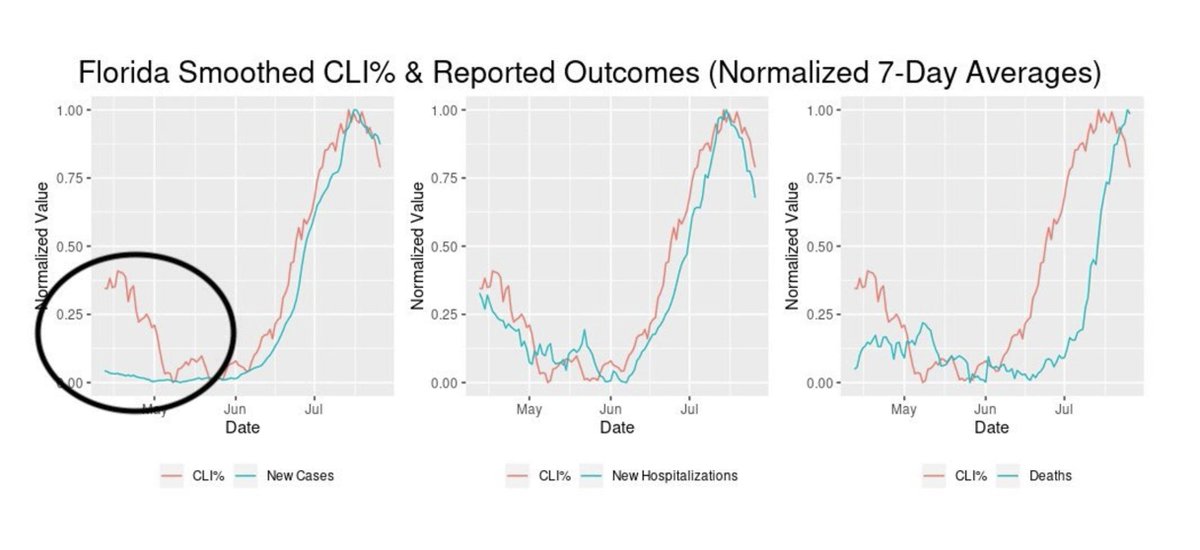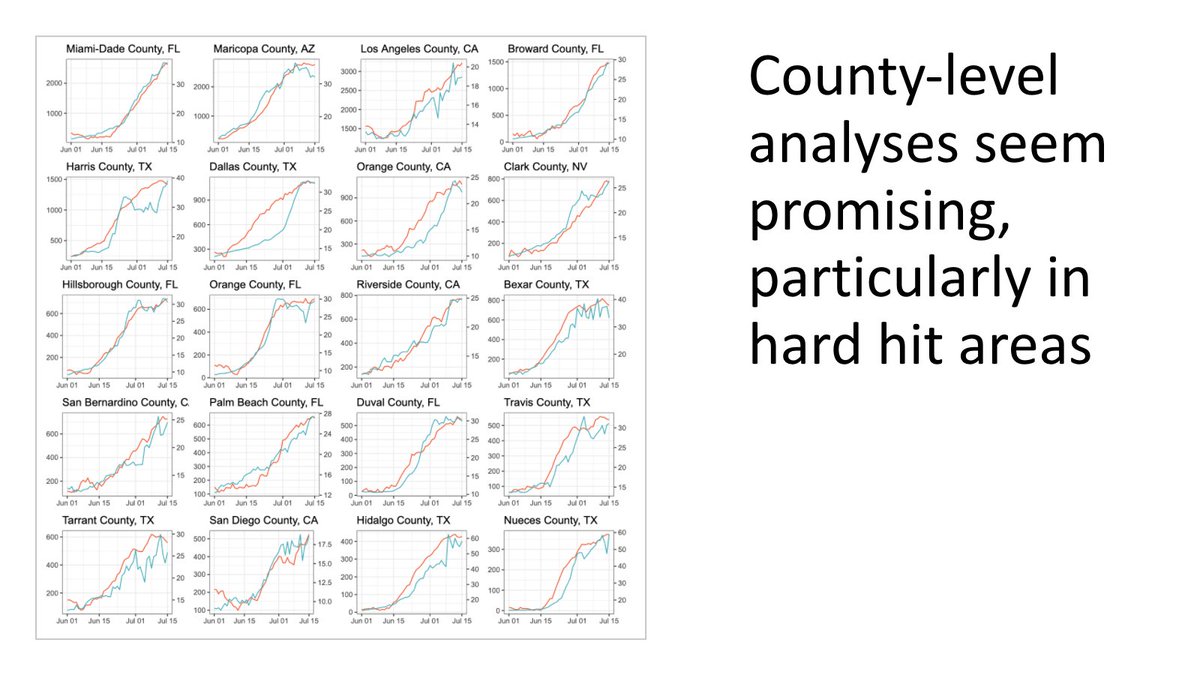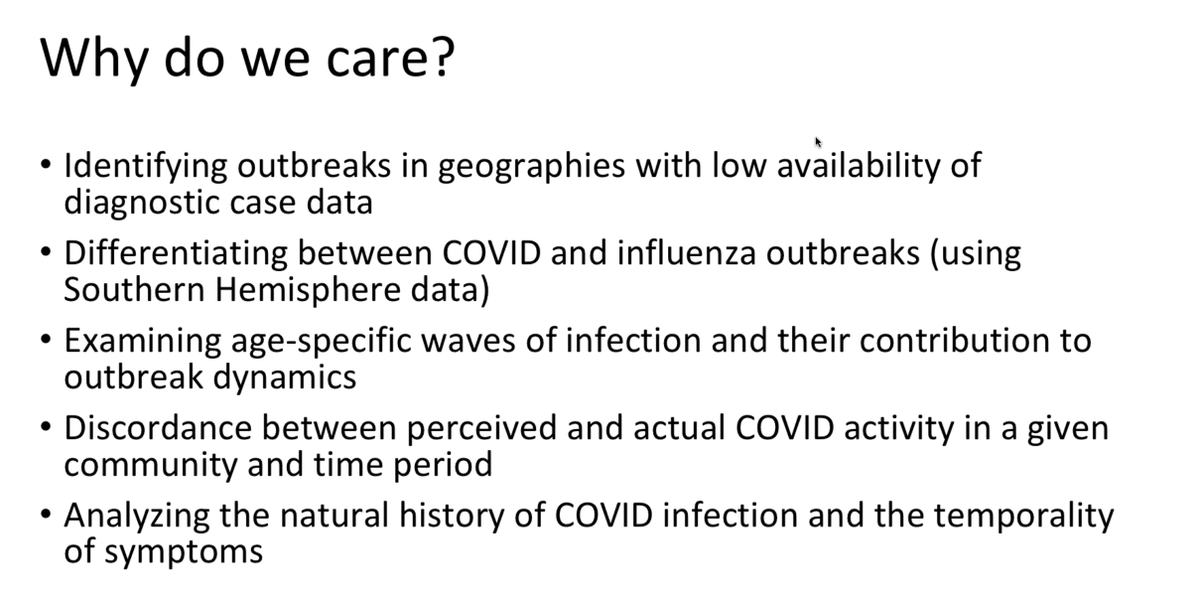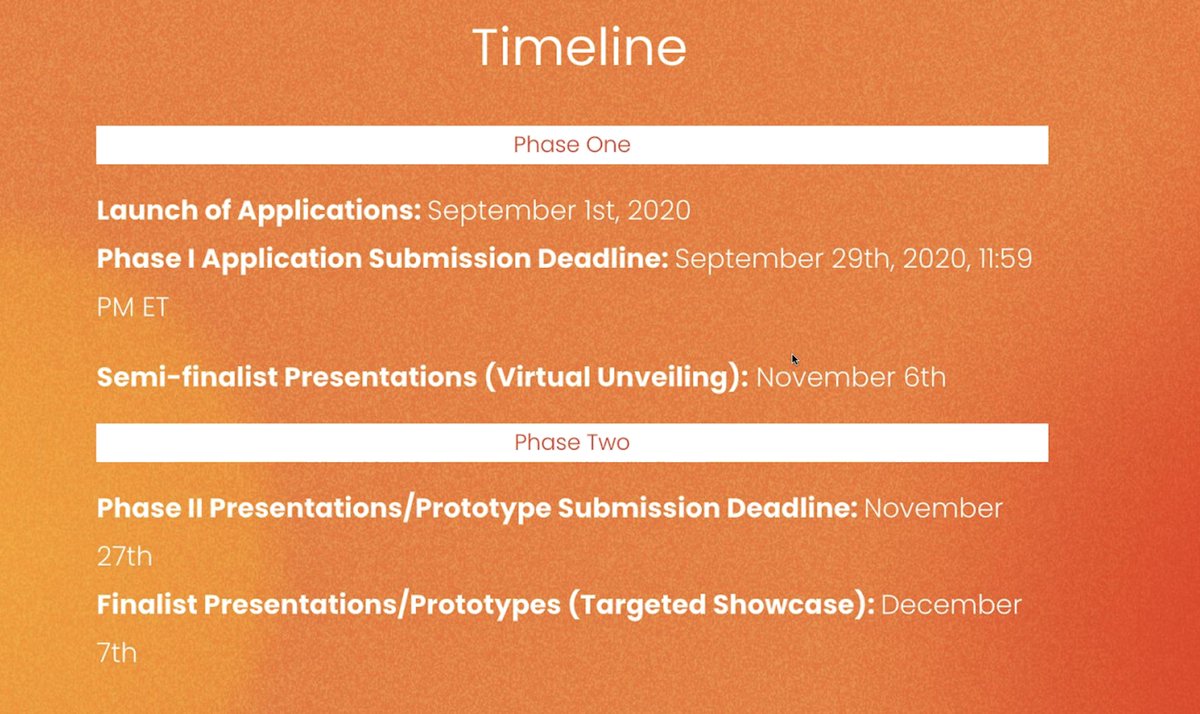COVID-19 Symptom Challenge webinar happening now!
[A thread]
https://register.gotowebinar.com/register/6102626394063911951?source=Catalyst%20Social https://twitter.com/Farzad_MD/status/1303091244629983233
[A thread]
https://register.gotowebinar.com/register/6102626394063911951?source=Catalyst%20Social https://twitter.com/Farzad_MD/status/1303091244629983233
Mark McClellan ( @DukeMargolis) kicks off: Duke is hosting this challenge because crowd-contributed and crowd-sourced efforts can help us develop even better analytic tools for identifying COVID outbreaks.
3/ @DrTomFrieden put the problem simply: "Timely data saves lives." The faster we can identify clusters and outbreaks, the more effectively we can save lives.
4/ An intro to syndromic surveillance: can we use symptoms as an early signal to identify outbreaks?
@Farzad_MD helped developed "influenza-like illness" surveillance in NYC — can we identify "COVID-like illness? https://twitter.com/Farzad_MD/status/1236412487714701312
@Farzad_MD helped developed "influenza-like illness" surveillance in NYC — can we identify "COVID-like illness? https://twitter.com/Farzad_MD/status/1236412487714701312
5/ Enter @CmuDelphi and @JPSMumd. Earlier this year, in partnership with @Facebook, these academic institutions launched 'symptom surveys' to identify COVID-like illness in the US and globally. Users like you and me are prompted to respond at the top of our newsfeeds!
8/ For the survey methodologists among us, have no fear — there are analytic weights available to correct for random-sampling, non-response and coverage errors.
9/
Currently aggregate publicly available data is accessible via APIs:
https://covidmap.umd.edu/api.html
https://cmu-delphi.github.io/delphi-epidata/api/covidcast.html
Sign up here to receive updates on the data. including CSV flat files (coming soon): https://health2con-paxfp.formstack.com/forms/dataset_indication_of_interest
Currently aggregate publicly available data is accessible via APIs:
https://covidmap.umd.edu/api.html
https://cmu-delphi.github.io/delphi-epidata/api/covidcast.html
Sign up here to receive updates on the data. including CSV flat files (coming soon): https://health2con-paxfp.formstack.com/forms/dataset_indication_of_interest
10/ @cmyeaton sharing some early applications of the data. Look at those correlations!
11/ But it's not just that these symptom survey data are correlated with case data — there's also a temporal element. Look at the early warning signal in Florida here in May.
(Remember what @DrTomFrieden said: "Timely data saves lives.")
(Remember what @DrTomFrieden said: "Timely data saves lives.")
14/ @Farzad_MD and @kxjin talk about uptake of the data
"It's important to have interdisciplinary approaches bringing in complementary expertise." Citizen scientists, academics, and the general public are encouraged to participate!
"It's important to have interdisciplinary approaches bringing in complementary expertise." Citizen scientists, academics, and the general public are encouraged to participate!
14.5/ P.S. Pretty sure @kxjin is wearing the exact same outfit today as he is in his photo.
15/ @bluetopaz of @catalyst_H20 shares process and deadline deets
Questions? Email [email protected]
Apply/more details: http://symptomchallenge.org
Questions? Email [email protected]
Apply/more details: http://symptomchallenge.org
16/ @Farzad_MD
"The current data we have available are flawed. Symptom data might magnify the signal-to-noise."
"This won't be the only thing we look at — but why not find ways to use symptom data to give us better situational awareness? That would be success."
"The current data we have available are flawed. Symptom data might magnify the signal-to-noise."
"This won't be the only thing we look at — but why not find ways to use symptom data to give us better situational awareness? That would be success."
17/
Q: Is there a paper with more methodology details?
A: Yes! There are details here, among other places:
https://cmu-delphi.github.io/delphi-epidata/api/covidcast.html
Q: Is there a paper with more methodology details?
A: Yes! There are details here, among other places:
https://cmu-delphi.github.io/delphi-epidata/api/covidcast.html
18/
Q: Can individuals access non-aggregated data?
A: Yes, if they are affiliated with academic / non-profit research organization. (Must sign an agreement not to release non-aggregated data.)
Q: Can individuals access non-aggregated data?
A: Yes, if they are affiliated with academic / non-profit research organization. (Must sign an agreement not to release non-aggregated data.)
19/
Q: Can we use non-aggregated data for the challenge?
A: No — asking participants to start by using aggregated data.
Q: Can we use non-aggregated data for the challenge?
A: No — asking participants to start by using aggregated data.
20/
Q: How do I get to the data?
A: http://symptomchallenge.org (this is, incidentally, the answer to a lot of questions related to the Challenge!)
Q: How do I get to the data?
A: http://symptomchallenge.org (this is, incidentally, the answer to a lot of questions related to the Challenge!)
21/
Q: How does the money work?
A: Semi-finalists each receive $5K. Winner gets $50K and runner-up gets $25K.
Q: How does the money work?
A: Semi-finalists each receive $5K. Winner gets $50K and runner-up gets $25K.
22/ That's it for now! Join the Slack workspace! Bye! https://symptomdatachallenge.slack.com/join/shared_invite/zt-glz0cr6v-a3dEfpxwUbXnDWYV8YiYIw#/
23/ CSV data is available here and is pretty nifty: https://cmu.app.box.com/s/ymnmu3i125go4aue0qxosi3rbcae20bj

 Read on Twitter
Read on Twitter
